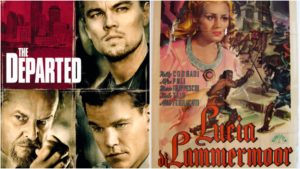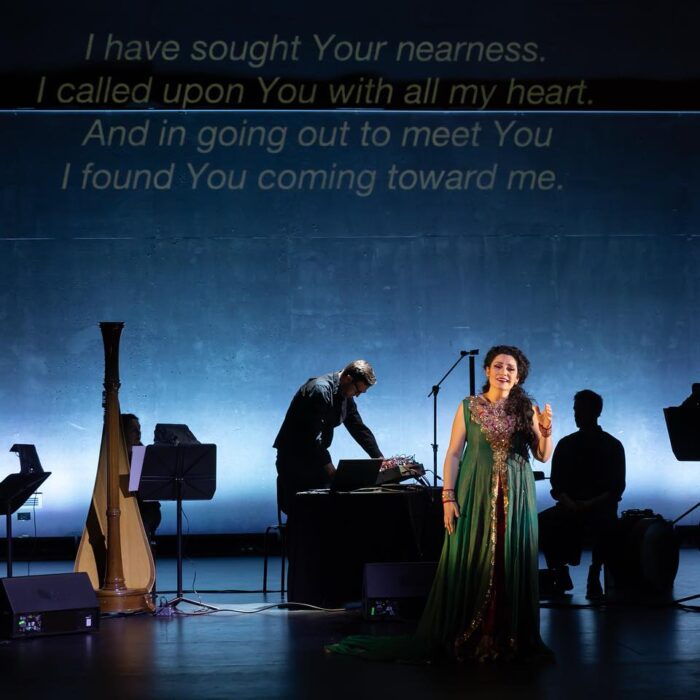
Opera Meets Film: What the ‘Lucia di Lammermoor’ / ‘Want Some Coke’ Scene From ‘The Departed’ Reveals About Frank Costello’s Character
By David Salazar“Opera Meets Film” is a feature dedicated to exploring the way that opera has been employed in cinema. We will select a section or a film in its entirety, highlighting the impact that utilizing the operatic form or sections from an opera can alter our perception of a film that we are viewing. This week’s installment features Martin Scorcese’s “The Departed.”
Martin Scorcese’s film can, to some degree, be considered operatic in nature. From his earliest works to his most recent, the auteur has always showcased larger-than-life characters in extreme situations, his films lyrical in expressing those very beings’ ever-intense emotions.
So it is no surprise to find opera appear in some of his work, as is the case with “The Departed,” a film that features one of the “largest” characters the director has ever concocted, Jack Nickolson’s Frank Costello. Throughout the film, we see the gangster grow in stature as he loses his sanity and, ultimately, his power and life.
And it is around him that the first operatic moment of the film occurs. At an early stage in the film, we see Frank at the opera watching the sextet from Donizetti’s “Lucia di Lammermoor.”
It’s a rather strange moment for a number of reasons and its impact on the film is subtle and yet highly nuanced.
Strangeness All Around
Regarding the strangeness, the moment is rather brief, carrying only about a minute of screen time in which we see Frank at the opera with two women and then promptly cut to him and the two women doing drugs and having sex. The scene only has one line of dialogue, “Want some coke? Don’t move till you’re numb.” Rather startling for a film that has so much dialogue.
The visual style of the sequence is also rather at odds with the rest of the film, the gritty realism of Boston replaced by a spare theater with a deep red background. We are shown Costello’s balcony, but nothing else. The stage gets a brief glimpse, but it too is submerged in darkness except for the singers. It almost feels alien to the rest of the world of the film and the ensuing scenes, are filled with dissolves in the editing, also a shift in style from the rest of the movie.
Bringing this all home is the opera itself, the music completely out of place with the rest of the tunes that make up the movie’s soundtrack. With songs like “Bang Bang” and “Gimme Shelter.”
Developing Character Through Context
The strangeness of this inclusion expresses a few things in the context of the film. On a character level it puts the spotlight on Costello, further emphasizing his larger-than-life status and how truly different from other characters he is. No one else in that film would be seen in an opera house, but Frank, for all of his violence, has a flair for high art and stooping to the lowest of lows in the cocaine montage.
Secondly, and not to be overlooked in the least, is how this scene and its placement explores Frank as a disrupting factor in the world around him. The scene that precedes this one has Leonardo DiCaprio’s Billy visiting Queenan at his home. As they prepare to engage in conversation in the kitchen, Scorcese cuts to the opera scene. And after the jarring and brief interlude, we are back with Billy as he continues with his mission, a key piece of the conversation suddenly cut out altogether to fit in Frank’s opera scene, which ultimately goes nowhere and has no major bearing on the plot itself.
The music from the sextet returns in a later scene setting up Billy and Colin Sullivan’s (Matt Damon) first phone call confrontation and again the music is showcased in a jarring manner, coming out of nowhere as Colin picks up the phone and then suddenly cut out completely as he opens the phone to make the call. It is bizarre and serves as an indirect callback to Frank’s equally strange and seemingly aimless interjection in the midst of the action.


